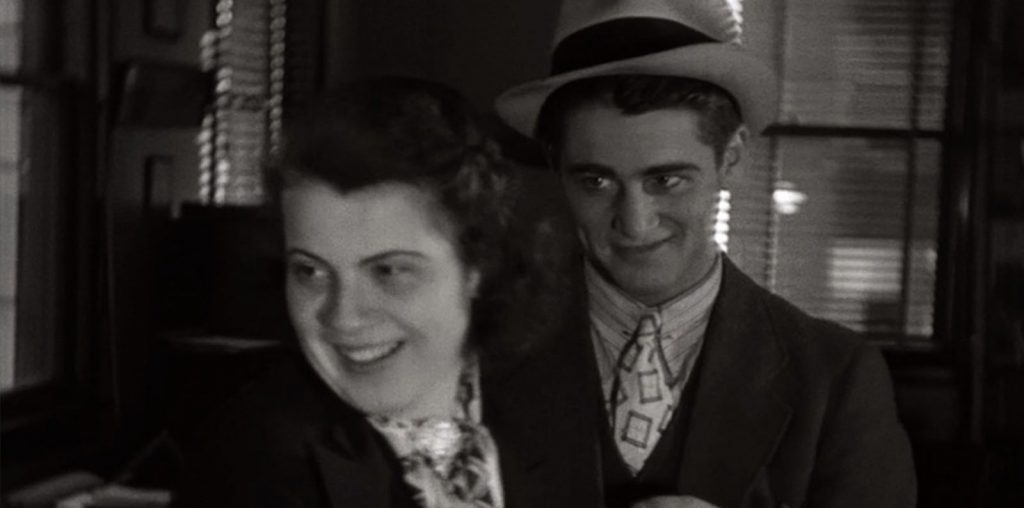
After three years of shooting a film with all the cast and crew, there must be some behind-the-scenes stories. Anything that you want to share?
Rashad: What stood out to me most was when we first started shooting with Stephen, Dr. Harden’s character. The scenes we had were intense. And I was nervous. I was thinking about how I would match up with his performance, constantly thinking we’d need to reshoot all of this. There were scenes of Mickey seeking therapy, and I thought I was dragging the part a lot. But he said, “Let’s just play, man. Let’s play with these characters a bit. Have fun with these scenes”. And it relieved me to a great extent. That’s one behind-the-scenes moment that stuck with me. I carry that on every other set I go on to. I’m like, let’s play, you know, to get the nerves and anxiety of it all. Just have fun with it. And, yeah, tell the story.
Marcellus: For me, it was the living room scene wherein Rashad had to hit David with a bat. That was an intense scene, but it turned out hilarious when shooting. We didn’t have much padding on him. I was concerned about David getting mishit, and we had to do that scene the second time. So, every time Rashad hit him, I went, “Don’t hit, don’t hit, don’t hit.” And looking at it in the final cut is such an important scene. That’s where Mickey finally makes that transformation. But the behind-the-scene moment of this scene is something I’ll always cherish.
David: For me, there was this scene I shared with the kid playing young Mickey. His name was Blake. The scene was that I, Randall, had to spank him. And to begin that scene, I would grab and throw him on the bed, which would cackle him. The whole time I’m supposed to be beating this child, he’s just dying laughing. And I’m trying so hard not to laugh.
You begin the film with a climactic reveal and then tell the tale through a flashback. Would keeping things a mystery have piqued intrigue among viewers?
Marcellus: Probably. But I gave it away to hook the audience into the crux of the story. What worked for me with that scene was that it sparked questions about what happened and how things could have led up to that point. Once you see the story unfold, you’re getting the full glimpse that he falls out mentally when he’s out of it. That was the whole point of having it play out how they played the first two or three minutes because I just wanted to show you that this is a journey. It’s a slow burn, but you must stick with it to fully grasp this character’s epic adventure.
“…never thought we’d get into Hong Kong in a million years. We just screened in Rome. It’s impressive to see a minor, $30,000 indie film getting screened in London and Cannes…”
Also, what is your take on the film’s depiction of mental health treatment? There is a moment where Cameron has to deny Mickey an extended therapy session, for he has an obligation towards another patient. It extends a paradoxical remark over this system: to cater to proper help. Still, it also has to be governed by ethics.
Marcellus: I wrote Stephen after meeting several therapists with the same time constraint. Their agenda is to address specific issues, so you’ll understand your concerns and solve the situation yourself one step at a time. I want to get you to discuss it. From the therapy perspective, the system is not meant for us to come out of this. Things are going to get better. It’s to have us come back for more. And that’s what all these kinds of panders toward that character are. He shall help you organize your thoughts and find solutions instead of dedicating specifically to one individual and getting him real help. And that was the way that I portrayed Dr. Harden. He’s not a villain. He’s not looking to take advantage of it. He’s just doing what he’s taught to do in his practice, to have patients follow a process and keep discussing.
That was the way that Stephen had portrayed the character. You’re looking at Dr. Cameron Harden as an individual who cares, but at the same time, he can’t put every single bit of his focus into this. He has other patients he has to deal with who have similar issues, if not worse. That’s how the system works because they’re overloaded.
Yet, simultaneously, I can see why somebody like Mickey would come out of that situation saying what the hell was this? Mickey says, “I don’t feel like you’re trying to help me. I feel like you’re trying to take advantage. I feel like you’re just like the rest of them.” I understand why he had that perspective at the end. He is told suddenly that his time is up, but he pleads, “I need more because I’m going through some s**t.” And I feel that in my heart, therapists can make a change; they can do more on pre-scheduled one-hour sessions every other day. Again, as you said, it’s paradoxical.
Rashad: The film portrays therapy in an honest, authentic way. There has to be a line between professionalism and patient care. But you also shall realize what that person is going through and be vulnerable, accepting, and open to it. You want them to have autonomy over their own healing. So it was very realistic. And, you know, I haven’t been to therapy myself. I feel like I need to; I should. Everybody should at some point, maybe.
When making a film with such a wide range of subjects, is it easier to have it as an independent production? Or do the financial restraints overwhelm you?
Marcellus: From a financial perspective, it is difficult, but in terms of the creative side, it’s easy. It is beyond easy because you control the artistic domain. You can explore these options a studio would never allow you to, especially nowadays, because everything is always consumed around financial games and capitalism. Money is God when it comes to cinema today, unfortunately. To do this independently and showcase it how I envisioned it was simple.
This was not difficult to create outside of the financial limitations. Because I knew the story, developing it over time and meeting with many people dealing with these situations was artistically fulfilling. And to be able to see showcase on the big screen and to be showcased streaming in the way that you solely intended for it to have an impact and the actual social and mental message. Yeah. Creatively, it’s by far easy.
David: I may not have been in it if it hadn’t been an independent film. I mean, not from Marcellus’s decision, but he’d had to jump through some hoops to keep me or Rashad in it after the concept short was shot.
Rashad: I felt more freedom doing it since it was a nonunion job. So that helped me a little bit, with more freedom as opposed to it being a big-budget thing that I probably wouldn’t have been the first choice for.
Lastly, tell me what the following plans for the film are. You are screening in Rome, Hong Kong, etc. What’s next?
Marcellus: I never thought we’d get into Hong Kong in a million years. We just screened in Rome. It’s impressive to see a minor, $30,000 indie film getting screened in London and Cannes; it’s pretty incredible. This is all for the betterment of mental health. It’s all for wanting to help people in the situations you see Mickey going through. And Hong Kong will probably not be our last, as I predicted earlier. I just got a grant from Film Independent. We might be keeping it screening on the festival circuit in 2024. But we got to see how the rules work out because we’re already screening. So we can screen a couple more festivals. We’ll start exploring some festivals around December; hopefully, we will have another re-releasing between April and May 2024. So, it will likely be another year of streaming the film on the circuit.
And for that continuing applause, I must congratulate and thank these fantastic performers; it’s genuinely their accomplishment.

